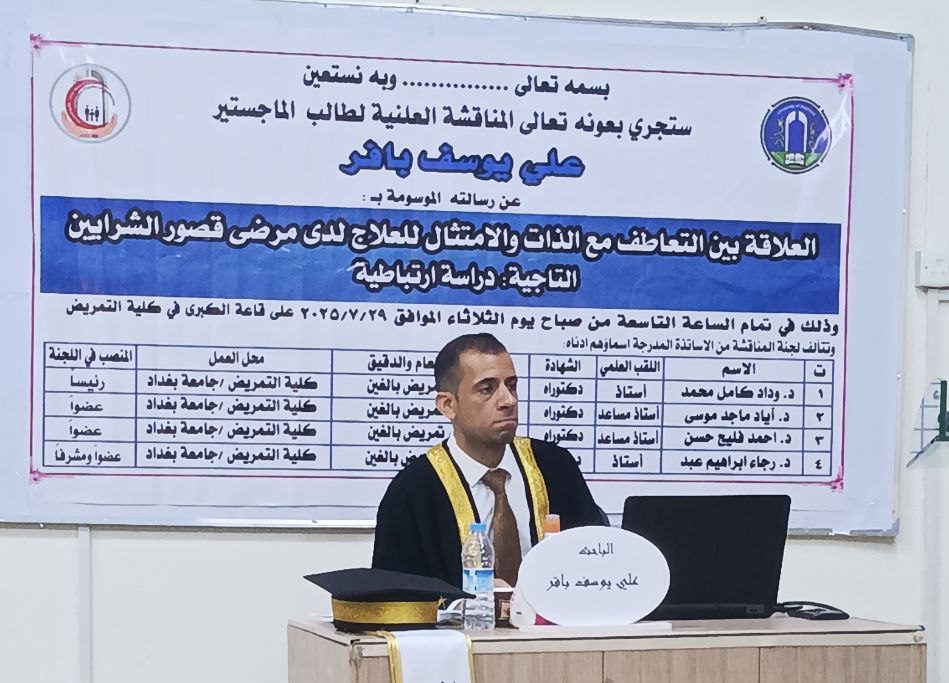The College of Nursing at the University of Baghdad discussed a master’s thesis entitled: “The relationship between self-compassion and treatment compliance in patients with coronary artery disease: a correlational study” by student Ali Youssef Baqir, supervised by Professor Raja Ibrahim Abdul, in the faculty’s main hall.
The thesis aimed to explore the statistical relationship between self-compassion and medication adherence in patients with coronary artery disease, and the results showed a strong and statistically significant relationship between the two variables. The study showed that although patients showed a good level of self-compassion, their level of medication adherence was partial. These results support the theory of planned behavior, suggesting that self-compassion may be a crucial psychological factor in improving patient adherence to treatment plans.
The study recommended the integration of psychological interventions, such as mindful self-compassion (MSC) and cognitive behavioral therapy, into cardiac rehabilitation programs. This is aimed at enhancing self-compassion and improving medication adherence. The study also emphasized the importance of organizing awareness campaigns through workshops and educational seminars, focusing on the need to continue taking medication even after symptoms improve.
The findings and recommendations of this study directly intersect with the United Nations Sustainable Development Goals, specifically Goal 3: Good Health and Well-being. By improving treatment adherence among patients with coronary artery disease, the study contributes to promoting the health and well-being of individuals and reducing premature deaths from noncommunicable diseases, which is in line with the main goals of this target.










